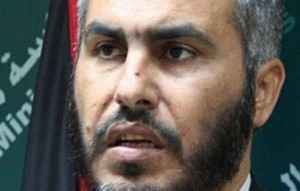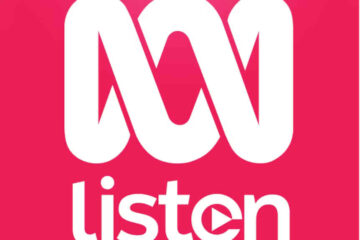Gershon Baskin is a rare figure in Israeli social and political life. A longtime peace activist, he has advised both the Israeli and Palestinian governments on the conflict and now-stagnant peace process.
Baskin is widely known for his role spearheading back-channel negotiations with Hamas for the release of Israeli soldier Gilad Shalit, who was kidnapped by the militant group during a cross-border attack in 2006 and held hostage in Gaza for five years.
For almost two decades, Baskin had sought to keep open communication channels with members of Hamas’ political wing. But three weeks after Hamas’ Oct. 7 attack on southern Israel, Baskin released an open letter to Ghazi Hamad, a senior Hamas official with whom he liaised on the Shalit deal. Baskin wrote that after 18 years of association, their working relationship had been harmed beyond repair. Hamad, for his part, has been in Beirut since the war started, managing much of Hamas’ communication strategy.
“I always thought you were a man with principles of humanity. How can you justify the things that your people did? How can you call for 1 million October 7 [attacks]? I have called Israel’s bombing of innocent civilians in Gaza a war crime,” Baskin wrote in the letter.
Baskin’s communication with Hamas had run dry in recent weeks, but the columnist and author has continued to engage in a media blitz and says he would talk to anyone if it meant bringing the hostages home.
Meanwhile, reports continue to swirl of a potential hostage deal, with Reuters reporting on Wednesday that Qatar is pushing for the release of 50 civilian hostages in exchange for a three-day truce and the release of an unknown number of Palestinian women and minors held in Israeli prisons. Israel’s public broadcaster, Kan, reported on Thursday, however, that Israel is insisting that a deal include the release of all children and their mothers currently held in Gaza.
Al-Monitor spoke to Gershon Baskin in Jerusalem about his own red lines and where hostage negotiations might be heading. The interview has been edited for length and clarity.
Why did you decide to cut off ties with Hamas’ Ghazi Hamad now, after such a long association that spanned many military flareups?
I was trying to get a deal done for the release of hostages as soon as possible. I had made a proposal to Ghazi for a deal that would see women, children, elderly, sick, and wounded released in a swap. He said he was talking to the leadership about it, which meant the leadership in Gaza and in Doha.
I made him confirm that the deal that we were talking about was OK’d by the leadership, both in Gaza and in Doha, and he confirmed to me that it was. I then asked him to make sure that they gave the proposal to the Qataris [who are key interlocutors in the ongoing negotiations] and he contacted me back and told me that the Qataris sent the message to the Israelis. I checked … and discovered that the Qataris had actually sent something else, not what we were talking about. And that made me come to understand that the people in Hamas who I was talking to, including Ghazi, were really not connected to any decision-making that was relevant.
I got tired of having conversations that were aggravating and meaningless with people who had nothing to do with the actual decisions that needed to be made.
And then he had a BBC interview, which he walked out on, where he was denying that Hamas did what they did [on Oct. 7]. Then there was that interview in Arabic on Lebanese television where he not only stopped denying it, he justified it and said we would do it over and over again, and Israel has to be annihilated, Israel is an illogical and illegitimate state. That for me was just over and beyond.
Is that different to the rhetoric you had heard from him before?
I had never heard rhetoric like that from him before. Never. We’ve had over a thousand conversations. Even the most difficult arguments that we’ve had. Nothing like that was said.
What do you think is Hamas’ strategy with regard to hostage negotiations?
There’s only one strategy, and that’s the strategy of freeing all the [Palestinian] prisoners in Israel, which has been a stated goal of [Hamas chief Yahya] Sinwar since the day he left an Israeli prison [in 2011].
In every important speech that he’s made over the years, Sinwar has said that they are going to liberate all the prisoners in Israel.
Now they’re in the midst of a war, and what Hamas wants to do is prolong the release plan to maximize a potential cease-fire. Whatever they agree to, whether it’s three or five days, they’re hoping to prolong the release of hostages with the belief that once a cease-fire of any length starts, the international community will put pressure on Israel to end the war.
Hamas would then emerge from their tunnels victorious, because they will still be holding a large number of hostages. They’d much rather just have [the men] and soldiers and then negotiate with Israel for the release of all the prisoners in Israel. Women, children, elderly, they’re just a burden for them.
The first fuel delivery entered Gaza on Wednesday with Israel’s agreement. What do you make of this?
I view it as being part of the negotiations on the hostages. When I spoke to the members of the American hostage team [in recent weeks], they talked very strongly of the need to take steps to build confidence in order to make an exchange possible. And I view the fuel deal in the context of that aim.
Are you currently speaking to any Israeli officials who are working on the release?
I haven’t in a couple of weeks. I am talking to people who are talking to them, but I’m not talking to anyone directly in Israel’s war cabinet.
Anyway, I think that even members of the war cabinet don’t know everything that’s happening because the Egyptian track is being run by the head of the Shabak [Israel’s domestic security agency], and the Qatari track is being run by the head of the Mossad, and they don’t necessarily brief everyone.
How do you look back at the Shalit deal now, in which one Israeli soldier was exchanged for more than 1,000 Palestinian prisoners, including Sinwar, who is deemed the mastermind of the Oct. 7 attack?
No one ever asked my opinion on that deal. I didn’t vote on it. I didn’t put the names of the people to be released. I negotiated from May 2011 until mid-July 2011. The negotiations were then taken over by the Egyptians, Israelis and Hamas.
And was it a good deal? No, it wasn’t a good deal. It was the only deal that could bring Gilad back alive. And [Prime Minister] Netanyahu and 26 members of his government decided that it was more important to stand by the promise that we don’t leave anyone behind than to stand by the value or the principle that we don’t negotiate with terrorists. And at the time, 80% of the Israeli public supported the deal. I thank God every day that Gilad Shalit is alive and that I had something to do with saving his life.
How do you, a peace activist, approach having these sorts of conversations with Hamas leaders?
Over the years I have spoken to Hamas leaders in Doha and in Gaza, but all the leaders I’ve spoken to are from the political wing of Hamas and not from the military, known as al-Qassam, and not from the fighting brigade of Hamas.
The people I have been talking to since the beginning of the war, including Ghazi Hamad, are all part of the political bureau. In any event, my conclusion was that the people that I was talking to, whether they be in Doha or in Gaza, are not the people who have consequences in terms of making the decision about the hostages.
If I believed that talking to Ghazi Hamad again could save the lives of Israeli hostages, I would talk to him. But there is no point talking to him because it’s clear to me he can’t do anything that would be helpful.
Leaders don’t run away to be spokesperson of a war in Beirut. Real leaders stay with their people when they start a war. And these people that I’ve been talking to are not real leaders. I hope that the Palestinian people make them pay the price of their failures. I don’t see any scenario where Hamas is in charge of Gaza at the end of this war.
Originally Published by Al-Monitor at https://www.al-monitor.com/originals/2023/11/why-israeli-hostage-negotiator-cut-contact-hamas




